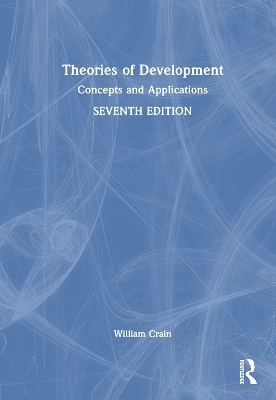
Theories of Development
Routledge (Verlag)
978-1-032-32530-9 (ISBN)
Theories of Development introduces students to the most influential theorists who have contributed to our understanding of how we develop as individuals. The book focuses on the theorists who have built upon the developmental tradition established by Rousseau, along with other theorists, including ethologists and psychoanalysts, who share a developmental outlook. It also considers theorists in the environmental/learning theory tradition and discusses the practical implications of all theorists’ work.
This edition has been thoroughly updated throughout, and now includes:
• A new chapter comparing treatment approaches to autism
• Greater attention to Erikson’s theory of identity formation and how it pertains to gender issues
• New thoughts on cultural factors in Piaget’s theory
• Biographical material on Jane Goodall, Howard Thurman, and Albert Einstein that illustrate developmental processes
Demonstrating how we might view the world differently at various stages of life, Theories of Development is a must-read for all students of psychology and education.
William Crain is Professor Emeritus of Psychology at The City College of New York. In 2008, he and his wife Ellen founded Safe Haven Farm Sanctuary, which gives a lifelong home to farm animals rescued from slaughter and abandonment. Bill and Ellen have three children and six grandchildren.
Introduction. Chapter 1. Early theories: Preformationism, Locke, and Rousseau. Chapter 2. Gesell’s Maturational Theory. Chapter 3. Ethological Theories: Darwin, Lorenz and Tinbergen, and Bowlby and Ainsworth. Chapter 4. Montessori’s Educational Philosophy. Chapter 5. Werner’s Organismic and Comparative Theory. Chapter 6. Piaget’s Cognitive-Developmental Theory. Chapter 7. Kohlberg’s Stages of Moral Development. Chapter 8. Learning Theory: Pavlov, Watson, and Skinner. Chapter 9. Bandura’s Social Learning Theory. Chapter 10. Vygotsky’s Social-History Theory of Cognitive Development. Chapter 11. Freud’s Psychoanalytic Theory. Chapter 12. Erikson and the Eight Stages of Life. Chapter 13. Mahler’s Separation/Individuation Theory. Chapter 14. Contrasting Approaches to Autism. Chapter 15. Schachtel on Childhood Experiences. Chapter 16. Jung’s Theory of Adulthood. Chapter 17. Chomsky’s Theory of Language Development. Chapter 18. Conclusion: Humanistic Psychology and Developmental Theory. Epilogue. A Developmental Perspective on the Standards Movement.
| Erscheinungsdatum | 21.04.2024 |
|---|---|
| Zusatzinfo | 4 Tables, black and white; 12 Line drawings, black and white; 25 Halftones, black and white; 37 Illustrations, black and white |
| Verlagsort | London |
| Sprache | englisch |
| Maße | 178 x 254 mm |
| Gewicht | 929 g |
| Themenwelt | Geisteswissenschaften ► Psychologie ► Allgemeine Psychologie |
| Geisteswissenschaften ► Psychologie ► Entwicklungspsychologie | |
| Geisteswissenschaften ► Psychologie ► Pädagogische Psychologie | |
| Sozialwissenschaften ► Pädagogik ► Vorschulpädagogik | |
| ISBN-10 | 1-032-32530-5 / 1032325305 |
| ISBN-13 | 978-1-032-32530-9 / 9781032325309 |
| Zustand | Neuware |
| Informationen gemäß Produktsicherheitsverordnung (GPSR) | |
| Haben Sie eine Frage zum Produkt? |
aus dem Bereich


